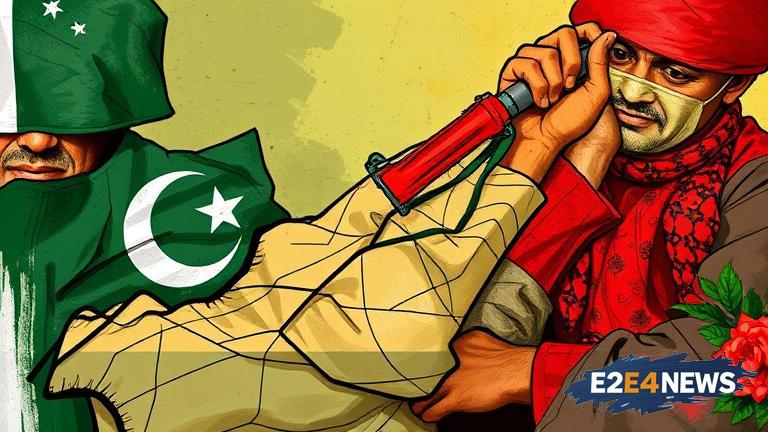The current political climate in Pakistan is marked by intense rivalry and complex alliances between various parties. The Pakistan Tehreek-i-Insaf (PTI) has been at the forefront of the opposition, with its leader Imran Khan leading a long march towards Islamabad to demand early elections. The PTI’s campaign has gained significant traction, with thousands of supporters joining the march. However, the Pakistan Muslim League-Nawaz (PML-N) has responded strongly, with its leaders accusing the PTI of attempting to destabilize the government. The PML-N has also announced its own plans to hold public rallies and gatherings to counter the PTI’s narrative. Meanwhile, other parties such as the Pakistan Peoples Party (PPP) and the Jamiat Ulema-i-Islam (JUI-F) are watching the situation closely, weighing their options and considering potential alliances. The PTI’s long march has also sparked concerns about the potential for violence and unrest, with some analysts warning of a possible confrontation between PTI supporters and law enforcement agencies. The government has responded by deploying security personnel and imposing section 144 in certain areas to maintain order. Despite these challenges, the PTI remains committed to its demand for early elections, with Imran Khan stating that the party will not back down until its demands are met. The PML-N, on the other hand, is adamant that the government will complete its term and that early elections are not a viable option. The situation is further complicated by the involvement of other stakeholders, including the military and the judiciary. The military has thus far maintained a neutral stance, but its role in shaping the country’s political landscape cannot be ignored. The judiciary, meanwhile, has been criticized for its handling of certain cases, including the disqualification of PTI leaders. As the situation continues to unfold, it is clear that the outcome will have significant implications for Pakistan’s future. The country is at a crossroads, with the potential for either stability and progress or chaos and unrest. The international community is also watching the situation closely, with some countries expressing concerns about the potential for instability in the region. The United States, in particular, has been vocal about its support for democracy and the rule of law in Pakistan. The European Union has also issued statements calling for calm and restraint. As the PTI’s long march continues, it is likely that the situation will remain volatile, with the potential for unexpected developments and twists. The PML-N, meanwhile, will need to navigate the complex web of alliances and rivalries to maintain its grip on power. The PPP and JUI-F will also need to make difficult decisions about their role in the unfolding drama. Ultimately, the future of Pakistan’s democracy and stability hangs in the balance, and the outcome of the current crisis will have far-reaching consequences for the country and its people. The situation is a reminder of the complexities and challenges of Pakistani politics, where alliances are forged and broken with ease, and the stakes are always high. As the country navigates this difficult period, it is clear that the need for dialogue, compromise, and statesmanship has never been greater. The international community can play a constructive role in supporting Pakistan’s democracy and encouraging all parties to work towards a peaceful and stable resolution. However, the ultimate responsibility for resolving the crisis lies with the parties themselves, and it is up to them to put the interests of the country and its people above their own narrow interests. The coming days and weeks will be crucial in determining the course of Pakistan’s history, and it is imperative that all parties approach the situation with caution, wisdom, and a commitment to the principles of democracy and the rule of law.
